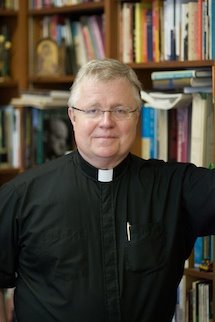Reflections on 9/11 – Tens years later
Perhaps you were like me over the past week listening to all of the reflections, memories, thoughts, projections, political implications and feelings people expressed about the planes that hit the World Trade Center, the Pentagon and an open field in Pennsylvania. I was especially moved by an article written by Jim Dwyer entitled, “In Love with Death.” He mentioned in this article that as the years went by, it was like climbing a ladder each year and viewing Ground Zero in a different way. Step by step from the rubble, you would rise to see new revelations from the events of that day.
He had one example that touched me and struck a cord in my heart. It was about a woman, Anne Mulderry, from upstate New York.
He wrote this:
"That morning, Anne Mulderry sat in the backyard of her home near Albany to wait for news about two of her eight children who worked in Lower Manhattan. Beforelong, she heard herself howling to the heavens.Her son, Stephen – scrappy college basketball player, family peacemaker – was, whenlast heard from, in a conference room on the 88th floor of the south tower with a dozen other people, all of them sharing a single phone to make their essential calls.Much later, struggling to find consolation, Anne Mulderry saw that the choices she faced also confronted the larger world. “How to resist falling in love with death was the question,” she said. “Depression and despair is one way of falling in love with death. Violence and aggression is another way.”
As I read this, I was confused at first by her statement that you could fall in love with death. But on further consideration, that’s always the seduction. The world is always trying to entice us with activities that bring us to death. Things can be so destructive whether it’s drugs and alcohol, violence and other shows on television of bad behavior or just succumbing to a despairing attitude of defeat. In so many small and subtle ways, our faith and our hope is nickeled and dimed away.
Mulderry becomes aware that the ache in her heart over the loss of her son could push her to embracing a hopeless and despairing attitude about life. But the lesson she shares is the same lesson that St. Paul tries to tell all of us. Death and hate and evil are not to have the last word. He even says, “Death where’s thy sting and grave where’s thy victory.” (1 Corinthians 15:55)
In the end, the Christian proposal for the whole world is that love is going to defeat hate and life will overcome death. This is the message for those of us who live on this side of the resurrection.
.jpg)